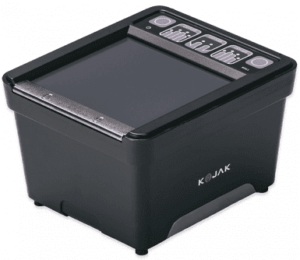“We’re extremely proud to be a pivotal part of what Santander is doing for so many millions of Mexican citizens.” – David Gerulski, Executive, Vice President, Integrated Biometrics

Santander Bank Mexico has announced a partnership with South Carolina-based mobile biometric sensor provider Integrated Biometrics (IB), that will see the bank supplied with the IB’s Kojak device: a 10-print FAP 60 biometric fingerprint scanner.
Kojak will provide Santander Mexico customers with greater protection against identity theft and fraud, whether completing transactions in person, via their mobile devices, or at ATMs.
“Santander Mexico has begun to register customers’ biometric data to make their transactions more secure, will invest one billion pesos [+US$44M] in the next five years, and expects to register more than 3.7 million customers in the country during the first stage,” reads a statement issued by the bank.
Santander has 145 million customers around the world, in more than one million communities, with its 2019 total assets amounting to US$1.7 trillion. Mexico is the second market where Santander has introduced fingerprint recognition for biometric authentication, as it had previously done so for its customers in the Brazilian market.
“What Santander Mexico has done is further proof that, when identity truly matters, fingerprint biometrics remains the world’s most effective method for securing the things we care about, whether our finances, borders, voting rights or social services,” said David Gerulski, Executive Vice President, Integrated Biometrics.
“We’re extremely proud to be a pivotal part of what Santander is doing for so many millions of Mexican citizens,” he added.
The Kojak fingerprint scanner made headlines earlier this month thanks to its role in the US Customs and Border Protection agency’s July 9 apprehension of a wanted fugitive at the Laredo Port of Entry. That IB’s fingerprint scanner can be applied to both border enforcement and customer-protecting financial applications speaks to the versatility of the biometric solution.
Biometric authentication has been growing in popularity in recent years, with several studies showing that the majority of people believe it to be more safe and secure than traditional PIN/Password methods. The COVID-19 pandemic has accelerated this trend – particularly in the case of mobile biometric authentication – due to the rise of remote working and physical distancing measures aimed at mitigating the spread of the virus.
–
August 13, 2020 – by Tony Bitzionis






Follow Us